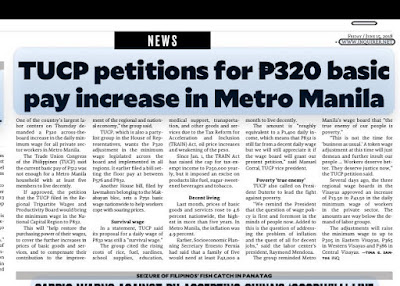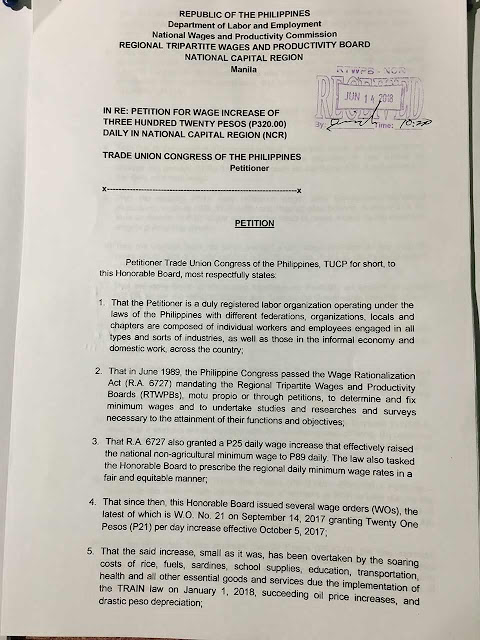 |
| (Flickr / MANILA BULLETIN) |
“While the flexible work scheme may save urban workers from an average 2 to 4 hours daily agony and disease-causing stress caused by commuting through traffic jams and poor mass transport system, cut fuel, transport and parking expenses and improve work-life balance, the arrangement may also deprive workers of their right to organize themselves as a union and to collective bargain for better wages and benefits,” said Gerard Seno, executive vice president of ALU, in a statement.
“It is very important, therefore, for its tripartite-drafted implementing rules and regulation (IRR) to be crafted by the Department of Labor and Employment that guides employees and employers in the application of the scheme at the same time to promote the right to organize and to collectively bargain,” Seno said.
He said workers social protection insurance and exposure to occupational safety and health hazard must also be addressed effectively in the preparation of the IRR.
ALU-TUCP Spokesman Alan Tanjusay is also concerned that the distance between workers may make it more difficult for workers to become organized.
“We are worried that the distance between workers may make organization of unions more difficult since they won’t be seeing each other in the workplace,” he said.
Still, the labor group believes that House Bill 7402 or Telecommuting Act otherwise known as the work from home proposal will bode well for employees, who had been dealing with hazards caused by traffic congestion and inadequate mass transport infrastructure.
“The flexible work scheme may save urban workers from an average 2 to 4 hours daily agony and disease-causing stress caused by commuting through traffic jams and poor mass transport system, cut fuel, transport and parking expenses and improve work-life balance,” said Seno.
“Workers may also minimize exposure to pollution during commute and hazards caused by floods and typhoons,” he added.
Seno’sstatement comes after the proposed Telecommuting Act, otherwise known as the work from home bill, passed the third reading in the House of Representatives two weeks ago.
It is now pending in the Senate for the counterpart measure.
Expected to benefit from the measure are employees in the sectors of IT, business process management, business process outsourcing, animation, journalist, writers, transcriber, social media management, data entry, customer service, project management, and web designer and developer.
On the other hand, jobs that require operating machines, rendering frontline services, and doing agricultural work are not seen to benefit from the work-from-home scheme. - By Leslie Ann Aquino




